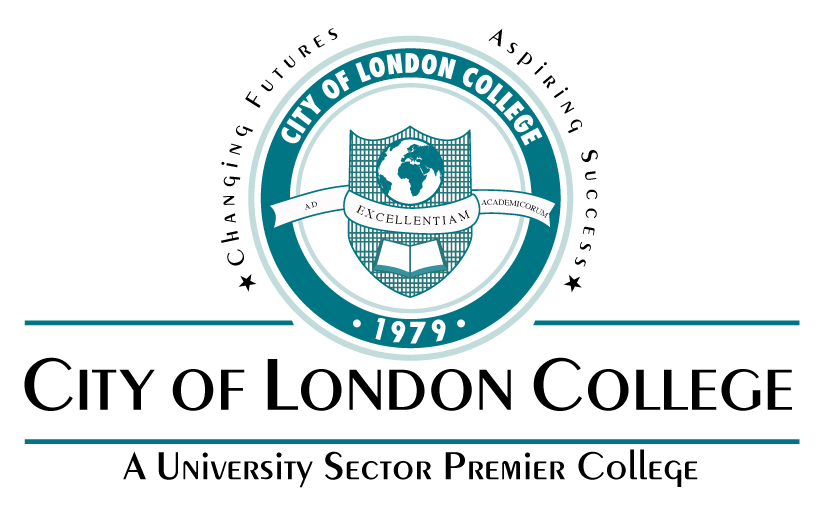BSc (Hons) Business Top-up

Awarding Body

Duration
01 Year
Course Type
Full-Time
Year of Entry
2026
Tuition Fee
£9535
Description
If you already hold a Level 5 qualification—such as a Foundation Degree, Associate Degree, Higher National Diploma (HND), or Advanced Diploma—in a business or management field, this top-up course allows you to complete your degree and earn a BSc (Hons).
You will cover key topics that enhance your practical business and management skills. Throughout each module, you will also examine the cultural and ethical dimensions of business, gaining insight into how business leaders and their decisions influence society.
This top-up degree offers flexibility, enabling you to study at your own pace and convenience, with full access to our face-to-face teaching and learning resources.
90%
of our BSc (Hons) Business Top-up Course students were satisfied with the learning resources on their course.
CLC - London Students Survey 2025
Modules information
Core/optional modules

Features
Programme Aims
- To provide a critical overview of business within a local, national and global context.
- To prepare students for a career in business or management either as an employee or entrepreneur
- To enable students to apply their knowledge, skills and experience within a real world business environment and become effective global citizens.
Knowledge & understanding
- Comprehensive and detailed knowledge and understanding of the sources, uses and management of financial accounting.
- Comprehensive and detailed knowledge and understanding of strategies for effective people management and leadership.
- Comprehensive and detailed knowledge and understanding of different approaches for marketing, including market segmentation, targeting, positioning and generating sales alongside customer satisfaction and loyalty.
- Comprehensive and detailed knowledge and understanding of the process of developing enterprising and innovative ideas for new or existing products/services recognising the ethical responsibilities of entrepreneurs and owner/managers
Intellectual skills
By the end of this programme students should be able to demonstrate:
- The ability to review, synthesise and critically evaluate relevant and appropriate literature and research methodologies.
- Critical engagement with a range of data related to business.
- The ability to analyse facts and circumstances to determine the cause of a problem and identify and select appropriate solutions.
Practical skills
By the end of this programme students should be able to demonstrate:
- The ability to formulate a business idea and recognise the necessary steps to set up a business.
- The utilisation of effective listening, negotiation, persuasion and networking skills for an effective career as an employee or entrepreneur.
- Effective numeracy skills through the use of quantitative methods to manipulate, evaluate and estimate from a range of data sources.
Transferable / key skills
By the end of this programme students should be able to demonstrate:
- The ability to articulate and explain information through verbal and non-verbal formats appropriate to a business environment.
- Effective team working and collaboration as an employee or entrepreneur.
- The capacity for independent learning and decision-making and the ability to work autonomously for lifelong learning.
- Critical reflection upon current knowledge, skills and experience and applicability for operating as an employee or entrepreneur.
e-Learning
- The programme will utilise the Marjon digital learning environment to its full potential.
- Staff will support student’s digital literacy using virtual
- forums to stimulate discussion and debate outside of scheduled teaching time. Use of the video
- conferencing will enable students to collaborate with businesses, live link with international
- guest speakers or interact with other business students across the globe.
- The Programme Leader will encourage and support staff in their digital literacy development to
- enable the University to differentiate itself on the use of technology in its academic offer.
A systematic approach has been taken to embed sustainability across the programme in a manner that goes beyond simply talking about sustainability. Students will apply learning through opportunities to experience sustainable practice and using skills for sustainable business practice.
This will be enhanced by teaching and learning activities such as: visiting lecturers with subject specific sustainability knowledge, work-based learning with the Corporate Social Responsibility arm of organisations and reflection on business values. Of significance to the programme and integrating sustainability is Social Enterprise. Staff members with expertise in this area, coupled with strong relationships with significant boards (Plymouth Social Enterprise Network) and Social Enterprises (Real Ideas Organisation) enable a real world approach to sustainability in business to be integrated into the curriculum.
Employability and Career Progression Opportunities
The programme aligns with Plymouth Marjon University’s Strategic Plan 2014-2024 and Marjon’s ‘The Edge’ – the Enterprise and Employability hub which aim for higher levels of employable and enterprising graduates.
The programme affords career progression opportunities through the subject specific knowledge and skills gained through taught content but also the variety of practical learning opportunities that are in conjunction with employers. Consultancy projects, fieldtrips, placements and networking events integrate employer partnerships into the programme and enable students to build up experience for their C.V.
Employment types anticipated from this degree are in; marketing, finance, HR, small business ownership, consultancy and management.
BSc (Hons) Business program at City of London College gave me the confidence to recognise career opportunities. Alumni network at the college has been a valuable resource in supporting my professional journey.
Andrea - Business Manager
Student Voice
Real World Experience – This programme has a hands on approach to learning achieved through activities such as business simulations and venture creation modules which provide practical learning opportunities. Assessments are designed with the ‘real world’ in mind incorporating activities which students would be expected to undertake, either as an entrepreneur or employee, such as pitches, presentations and business reports.
Business start-up – There are a range of opportunities for students to engage with entrepreneurship at all levels of the programme. In the final year, students have the option to run their own business during the ‘Enterprise Reality’ module. For those students who do not wish to run their own business the programme ensures that students are given the opportunity to undertake a range of practical and Work Based Learning (WBL), encompassing role plays, simulations, real projects, consultancy and placements at Levels 5 and 6.
A thought and action approach – Theory is discussed in relation to practice to enable an action based approach to learning. The programme provides students with the opportunity to acquire and develop entrepreneurial competencies, based upon academic research (Morris et al., 2013) that will significantly enhance their self-employability prospects on completion.
Two key themes within the degree programme – entrepreneurship and intrapreneurship.
Students can choose to set up their own business during the ‘Business Reality’ module or they can choose to engage in work-based learning with an employer. The assessment method for this module, a reflective portfolio, entails that students reflect upon their learning whether they chose to run their own business or work with an employer. Neither theme is preferential and is the choice of the student.

